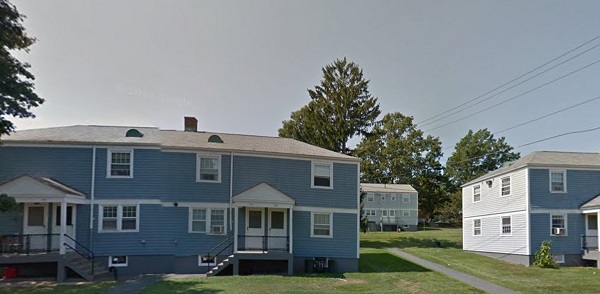The U.S. Attorney’s Office hosted a roundtable discussion today on sexual harassment in housing, which brought together local legal services organizations, fair housing organizations, and domestic violence advocates.
The Department of Justice, through the U.S. Attorney’s Offices and the Civil Rights Division, enforces the Fair Housing Act, which prohibits discrimination in housing on the basis of race, color, religion, sex, familial status, national origin, and disability. Sexual harassment is a form of sex discrimination prohibited by the Act. Sexual harassment by landlords, property managers, maintenance workers, and others with power over housing often affects the most vulnerable populations – single parents, individuals who have financial difficulties, and people who have suffered sexual violence in their past.
“There are landlords and property managers who abuse their positions to extort sexual favors from, or even sexually assault, vulnerable tenants, and that is unacceptable,” said U.S. Attorney Lelling said. “This conduct is an egregious violation of a person’s right to fair housing, and my Office’s Civil Rights Unit is dedicated to aggressively investigating such allegations and vigorously enforcing the law.”
In October 2017, the Justice Department’s Civil Rights Division announced the Sexual Harassment Initiative, an effort to combat sexual harassment in housing. The Justice Department’s initiative seeks to identify barriers to reporting sexual harassment in housing, increase awareness of its enforcement efforts – both among survivors and those they may report to – and collaborate with federal, state, and local partners to increase reporting and help survivors quickly and easily connect with federal resources.
The U.S. Attorney’s Office is collaborating with the Justice Department’s Civil Rights Division to raise awareness of the options that are available to help individuals experiencing sexual harassment. Community organizations, such as legal services offices, fair housing organizations, domestic violence advocates, shelters, and transitional housing providers, can identify the misconduct and recommend that individuals report sexual harassment to the Justice Department.
The Justice Department brings cases each year involving allegations that defendants have exposed themselves sexually to current or prospective tenants, requested sexual favors in exchange for reduced rents or making necessary repairs, made unrelenting and unwanted sexual advances to tenants, and evicted tenants who resisted their sexual overtures.
In 2017, the Justice Department recovered more than $1 million in damages for harassment victims. Many instances of sexual harassment in housing continue to go unreported. The Justice Department’s investigations frequently uncover sexual harassment that has been ongoing for years or decades and identify numerous victims who never reported the conduct to federal authorities.
The Justice Department encourages anyone who has experienced sexual harassment in housing, or knows someone who has, to contact the U.S. Attorney’s Office’s Civil Rights Unit by calling (617) 275-8756 or emailing USAMA.CivilRights@usdoj.gov; or the Justice Department’s Civil Rights Division by calling (844) 380-6178 or emailing fairhousing@usdoj.gov.
The Civil Rights Unit of the U.S. Attorney’s Office was established in 2015 with the mission of enhancing federal civil rights enforcement. For more information on the Office’s civil rights efforts, please visit www.justice.gov/usao-ma/civil-rights.
 New Bedford Guide Your Guide to New Bedford and South Coast, MA
New Bedford Guide Your Guide to New Bedford and South Coast, MA








